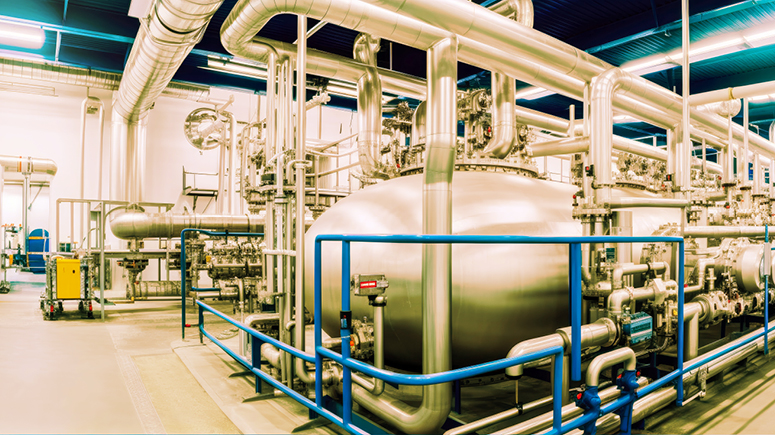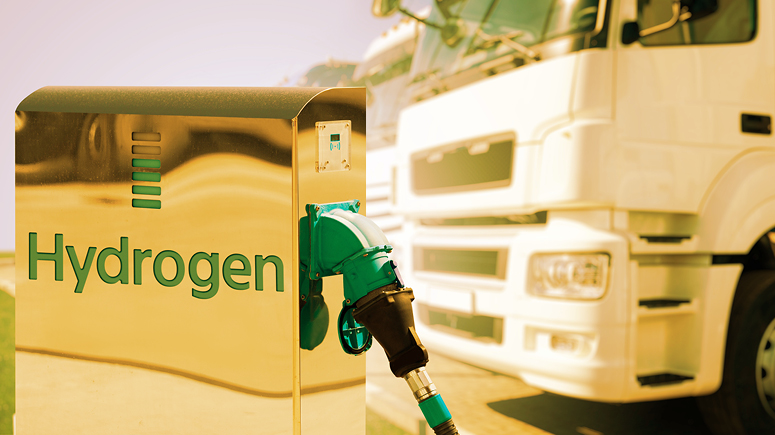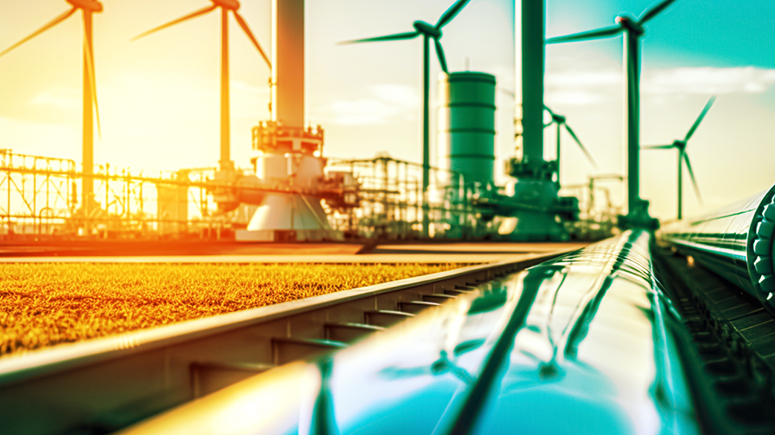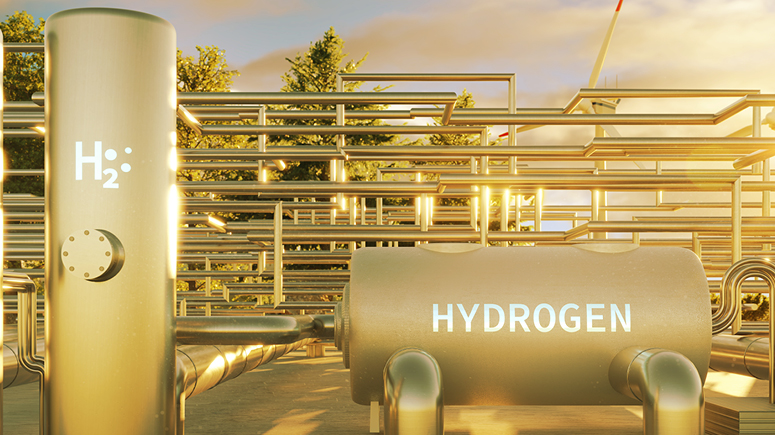Green hydrogen:
Our expertise
Energy-intensive industries, for example, have long relied on the use of hydrogen. In the wake of the current discussions and necessary measures to reduceCO2 emissions, the topic is also gaining momentum and interest in other areas.
In order to achieve theCO2 targets, transport, heating and industry must also become climate-neutral in addition to electricity generation. Green hydrogen is an important component of this. Green because the electricity required to split water into oxygen and hydrogen must come from renewable energy sources. The electrical energy is converted into chemical energy and stored in hydrogen. But green hydrogen is also produced during the gasification and fermentation of biomass. To name just a few simple examples.
Years ago, we built up considerable expertise in fuel cell development projects (APAWAGS and FUCAP). Today, we combine our expertise in the development of integrated energy systems that benefit all areas and help companies to achieve theirCO2 targets. Our focus is not only on the production of hydrogen, but also on its transportation, storage and diverse applications for heat generation, in land, sea and air transport and in industry. To achieve this, we work in interdisciplinary teams with expertise from the energy industry, process digitization and the respective sector.
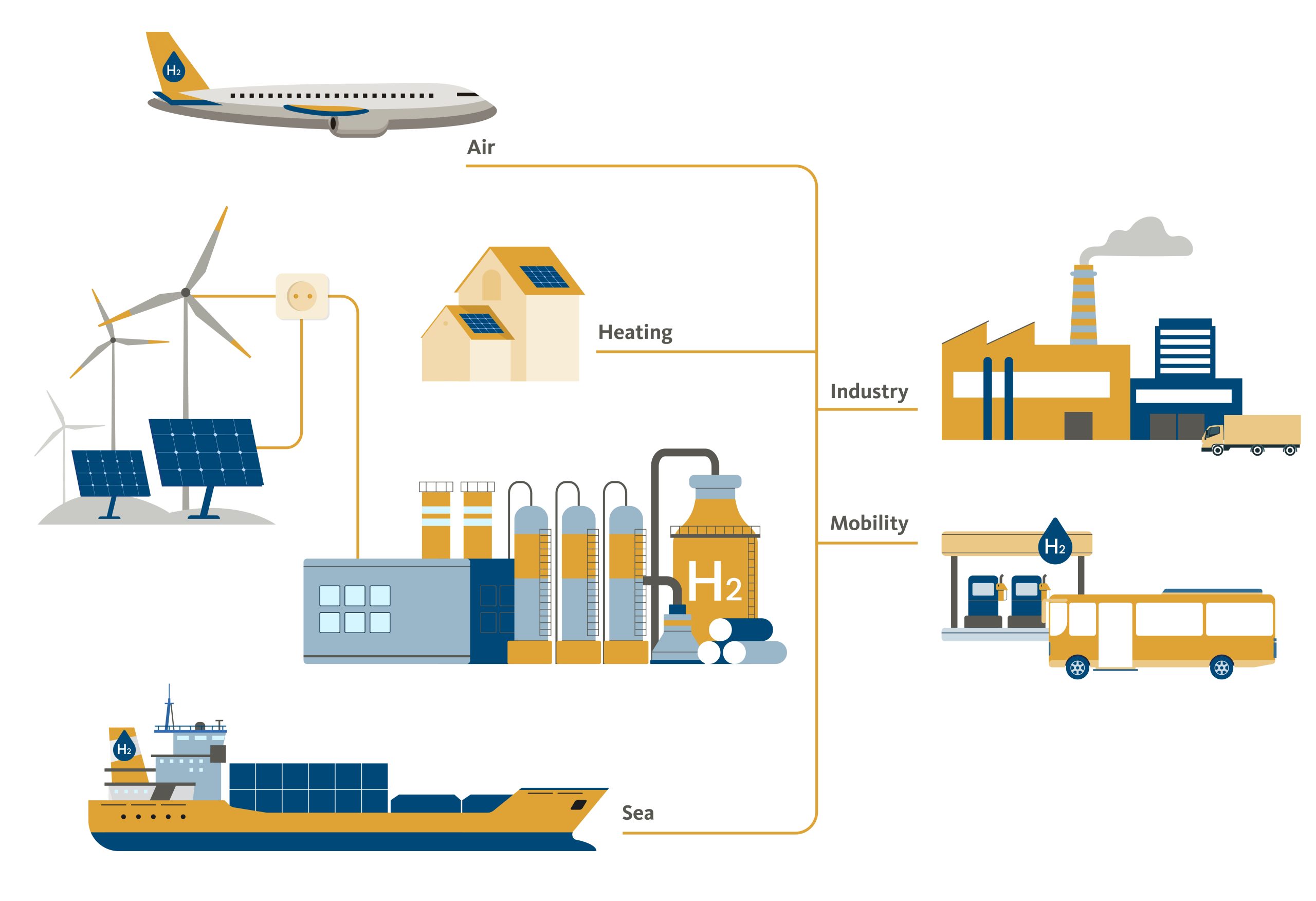
Successful maiden flight with our innovative hydrogen engine! A major milestone for the future of aviation.
After more than two years of intensive research and development as part of our H2-Finity project, we carried out the first successful flight with a gaseous hydrogen propulsion system in Rotenburg on November 8, 2024. This is based on a fuel cell that drives an electric motor - a significant step towards sustainable aviation technologies.
This project was only possible thanks to the collaboration with our great partners: mb+Partner, Thelsys and the ZAL - Center of Applied Aeronautical Research. We would like to thank them for their active support and great commitment. Special thanks also go to the Hamburgische Investitions- und Förderbank (IFB Hamburg) for the funding within the framework of the GATE I program. Without this support, this success would not have been possible.
The last few months have been characterized by intensive tests and inspections. From the evaluation of individual components to the complex installation in the drone, we have gained important insights for the future - be it in the areas of flight physics, cooling, electronics or function. This successful maiden flight marks an important step on the way to realizing our vision.
We are now looking forward with great motivation to the upcoming test phases and the final spurt of the project. A big thank you goes to our entire team at TECCON Consulting & Engineering GmbH - for the passion, commitment and innovative spirit that made this project possible.
We are working on the future
Green hydrogen is already being used in many areas today. And we are researching many other possibilities.
Our range of services for green hydrogen
Together with our partners, we take on all the necessary tasks for our customers, from development and planning to implementation. These include in detail:
Processes and methods of hydrogen technology
- Hydrogen production
- Safe handling of hydrogen
- Liquid hydrogen
- Thermodynamics & flow mechanisms
- Electrical engineering and process engineering
Storage of hydrogen
- Storage forms of hydrogen
- Pipe statics and pipe hydraulics
- Containers and apparatus engineering
- Hydrogen logistics
Modeling and simulation
- Introduction
- Description of dynamic systems
- Methods for modeling dynamic systems
- Simulation
- Practical examples
- Test stands and systems
Configure
- System architecture
- BZ & ELY stack structure and technologies
- BZ & ELY system architecture and components
- Key parameters
- Degradation of hydrogen components
- Hydrogen for aircraft applications
Economic and ecological assessment
- Determination and composition of the hydrogen price
- Calculating the profitability of projects
- Development of a hydrogen market
- Development of hydrogen trade (international)
- Influence on the decarbonization of
energy supply, industry and transport
Legal and economic protection
- Approval / Certification
- Legal and economic framework
- Analysis and optimization of technical systems
- Technical rules and safety
- TÜV and authorities
- Rescue services
- Facility Management
- Risk assessment

